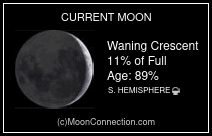Reincarnation is believed to occur when the soul or spirit, after the death of the body, comes back to Earth in a newborn body. This phenomenon is also known as transmigration of the soul.
This doctrine is a central tenet within the majority of Indian religious traditions, such as Hinduism, Jainism, and Sikhism; the Buddhist concept of rebirth is also often referred to as reincarnation.The idea was also fundamental to some Greek philosophers and religions as well as other religions, such as Druidism. It is also found in many small-scale societies around the world, in places such as Siberia, West Africa, North America, and Australia.
Although the majority of sects within Judaism, Christianity and Islam do not believe that individuals reincarnate, particular groups within these religions do refer to reincarnation; these groups include the Hassidim and Cathars. The historical relations between these sects and the beliefs about reincarnation that were characteristic of the Neoplatonism, Hermeticism, Manicheanism and Gnosticism of the Roman era, as well as the Indian religions, is unclear.
The word "reincarnation" derives from Latin, literally meaning, "entering the flesh again"
The Greek equivalent metempsychosis (μετεμψύχωσις) roughly corresponds to the common English phrase "transmigration of the soul" and also usually connotes reincarnation after death
The term has been used by modern philosophers such as Kurt ödel and has entered the English language. Another Greek term sometimes used synonymously is palingenesis, "being born again".
There is no word corresponding exactly to the English terms "rebirth", "metempsychosis", "transmigration" or "reincarnation" in the traditional languages of Pāli and Sanskrit. The entire universal process that gives rise to the cycle of death and rebirth, governed by karma, is referred to as Samsara
while the state one is born into, the individual process of being born or coming into the world in any way, is referred to simply as "birth" (jāti). Devas (gods) may also die and live again
Here the term "reincarnation" is not strictly applicable, yet Hindu gods are said to have reincarnated
Lord Vishnu is known for His ten incarnations, the Dashavatars. Celtic religion seems to have had reincarnating gods also. Many Christians regard Jesus as a divine incarnation and they and many Muslims believe he and some prophets may incarnate again. Some extreme
Shi'a Muslim sects also regard their founders as in some special sense divine incarnations (hulul).
Philosophical and religious beliefs regarding the existence or non-existence of an unchanging 'self' have a direct bearing on how reincarnation is viewed within a given tradition. The Buddha lived at a time of great philosophical creativity in India when many conceptions of the nature of life and death were proposed. Some were materialist, holding that there was no existence that the self is annihilated upon death. Others believed in a form of cyclic existence, where a being is born, lives, dies and then is re-born, but in the context of a type of determinism or fatalism in which karma played no role. Others were "eternalists", postulating an eternally existent self or soul comparable to that in Judaic monotheism: the ātman survives death and reincarnates as another living being, based on its karmic inheritance. This is the idea that has become dominant (with certain modifications) in modern Hinduism.
The Buddhist concept of reincarnation differs from others in that there is no eternal "soul", "spirit' or self" but only a "stream of consciousness" that links life with life. The actual process of change from one life to the next is called punarbhava (Sanskrit) or punabbhava (Pāli), literally "becoming again", or more briefly bhava, "becoming", and some English-speaking Buddhists prefer the term "rebirth" or "re-becoming" to render this term as they take "reincarnation" to imply a fixed entity that is reborn
Popular Jain cosmology and Buddhist cosmology as well as a number of schools of Hinduism posit rebirth in many worlds and in varied forms. In Buddhist tradition the process occurs across five or six realms of existence, including the human, any kind of animal and several types of supernatural being. It is said in Tibetan Buddhism that it is very rare for a person to be reborn in the immediate next life as a human
Gilgul, Gilgul neshamot or Gilgulei Ha Neshamot(Heb. גלגול הנשמות) refers to the concept of reincarnation in Kabbalistic Judaism, found in much Yiddish literature among Ashkenazi Jews. Gilgul means "cycle" and neshamot is "souls." The equivalent Arabic term is tanasukh:[ the belief is found among Shi'a gulat Muslim sects.















0 comments